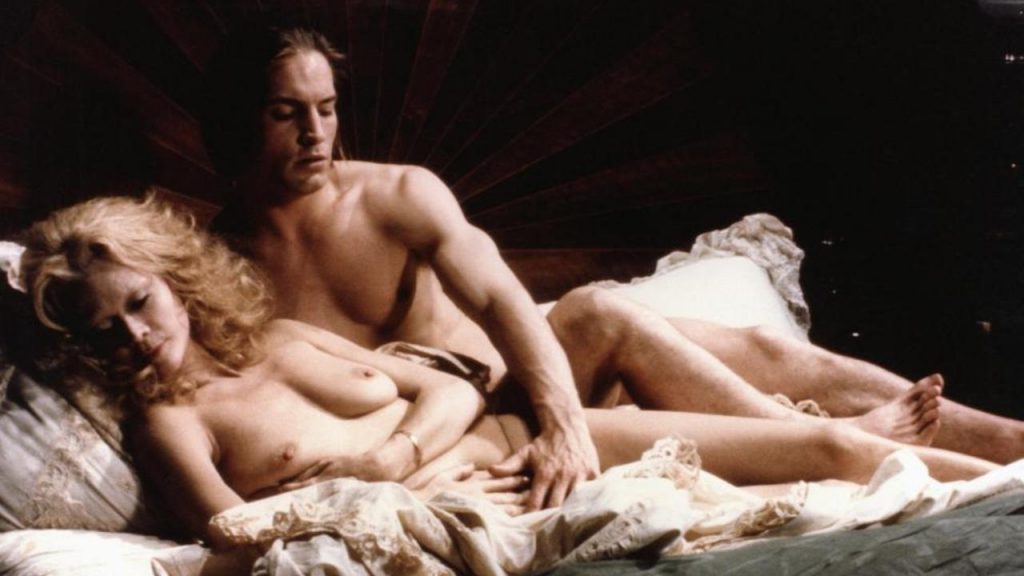
In April, 2015, Dagored, a record label based out of Florence Italy, re-issued in limited editions the soundtracks of two Paul Morrissey features, Blood For Dracula (1974) and Flesh For Frankenstein (1973). Dagored has specialized in such releases for some time now, re-issuing a number of soundtracks for cult and exploitation films on prestige vinyl. Dagored’s treatment of Blood For Dracula and Flesh For Frankenstein is consistent with the high mark of quality they have set. Blood For Dracula comes in a limited edition of red transparent vinyl while Flesh For Frankenstein comes in a limited edition of red and white colored vinyl with the colors swirled in the pressing. The jackets for these two releases present some wonderfully restored promotional art.
Despite all of these fancy trappings what is truly deserving of any attention is the music on these two albums. Composer Claudio Gizzi’s scores for these two films is lush, romantic, and highly expressive. When taken on their own apart from Morrissey’s images, one begins to appreciate how much Gizzi’s compositions underscore the emotional vitality of these films, punctuating the high-drama at play in Morrissey’s two features that provides the necessary contrast to their superficially “camp-comedy”. Typically Morrissey’s films are categorized and labeled as “camp” or as comedies. The best examples of Morrissey’s more personal statements on the emotional world of his characters can be found in Mixed Blood (1984), and Beethoven’s Nephew (1985). Why this component is so buried in the readings of these films can be summed up rather easily, the Andy Warhol brand. It’s been this brand that sustained Morrissey early in his film career but ultimately damned it to obscurity in the eighties.
Interestingly, Gizzi’s work with Paul Morrissey is a singular phenomenon in Claudio Gizzi’s career. Gizzi’s reputation and renown is due to his work as an arranger for European pop stars Loretta Goggi, Loy & Altomare, Andrea Antonelli, and Alvaro Guglielmi. Claudio Gizzi’s work on seven inch recordings in the sixties and seventies seems to have prepared Gizzi for the more involved task of scoring two feature films, but may also explain, by way of the very nature of “pop”, his ability as a composer to play to the emotional subtexts in Flesh For Frankenstein and Blood For Dracula with such dramatic flare.
All of that said I will admit that these limited pressings are very much suited for collectors, in price and presentation. But in reviewing this product I hope to have, once again, drawn attention to the work of Paul Morrissey and encouraged a more intelligent conversation about his contribution to the cinema.
